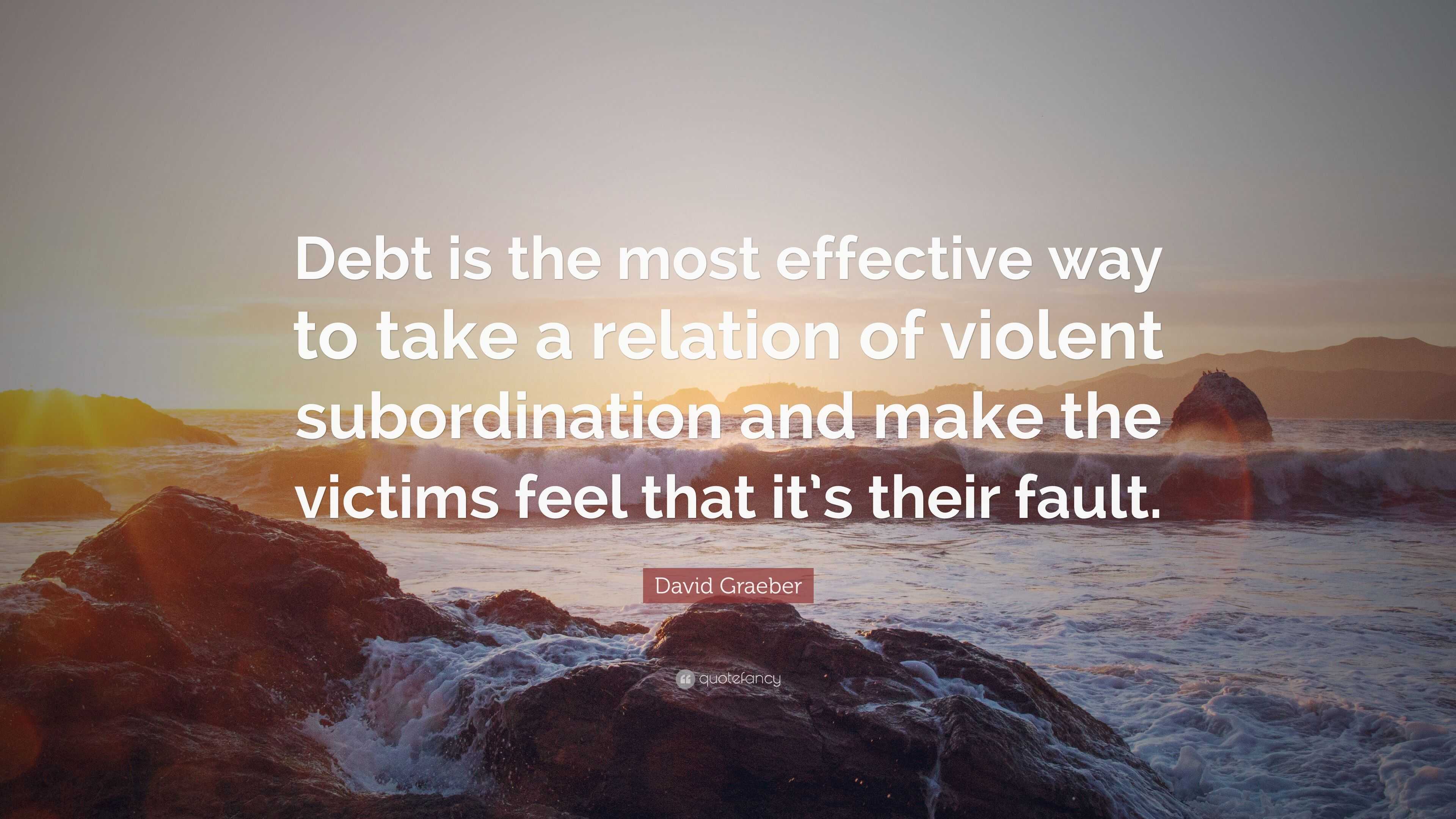
We obtain housing, education, transport and medical services through our access to credit - and as such we spend most of our lives deeply indebted. Today, there is growing concern about income inequality in America - but it is wealth inequality that captures the relation of debtors and creditors.ĭebt is central to most Americans' life experience. Though in principle the sum of all debts should equal the sum of all credits, in practice debtors are many and creditors few. He investigates debt across time and across cultures and finds it to be a primary institution, preceding exchange, money and any notion of “the economy.” Debt is a building block for ever more elaborate social organization, because it creates fluid structures of subordination. The ongoing financial crisis has revealed the degree to which most Americans (myself included, alas) are seriously indebted - and being so, we are more controlled than controlling.ĭavid Graeber - of Occupy Wall Street fame - has written, in Debt: The First 5,000 Years, a grand intellectual project and a call for action.


It is also insidious, since debt imposes a power relationship (amplified by the state) between borrower and creditor.


 0 kommentar(er)
0 kommentar(er)
